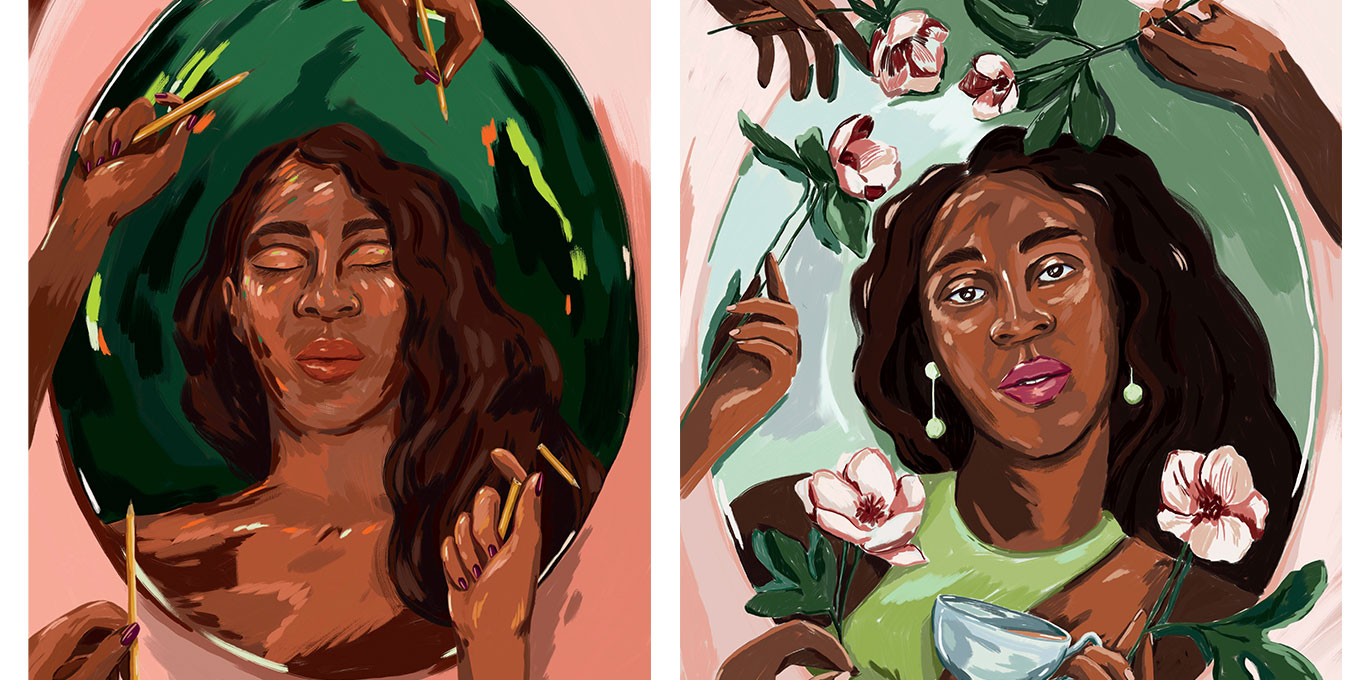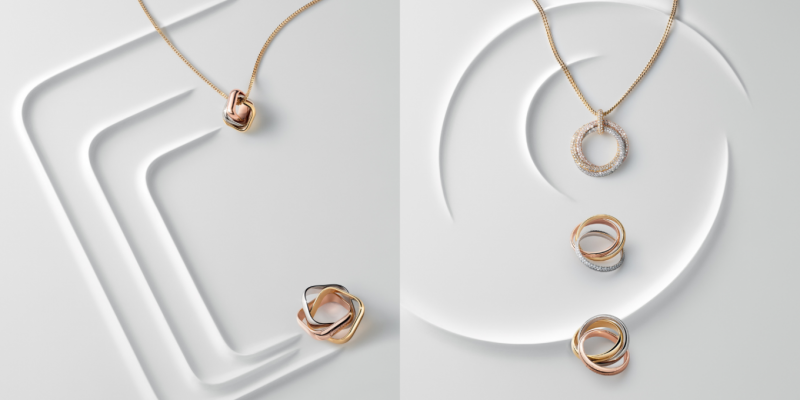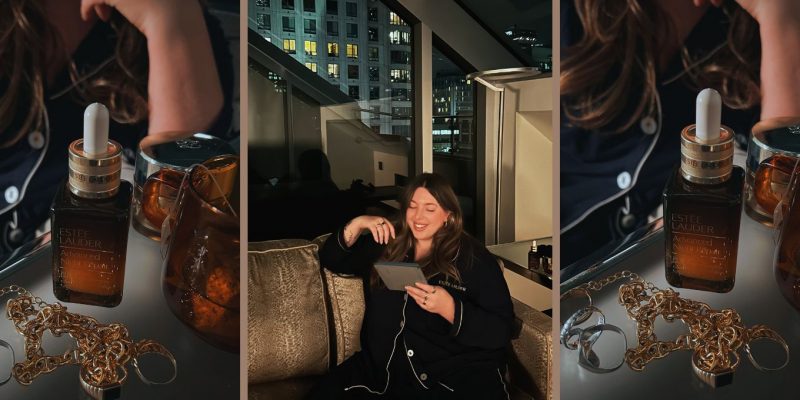Society
Emily Tamfo on How 2020 Became the Year of Letting Go of Lofty Goals
This lockdown has put our minds and bodies under significant distress and as a result we need to manage our behavioural expectations
by : Emily Tamfo- Dec 14th, 2020

Madison Van Rijn
I was supposed to write a book. It was going to be a Times bestseller, each chapter laden with the relatable cringe of Lena Dunham, the endearing quirkiness of Mindy Kaling and the affable awkwardness of Issa Rae. It’s a project I have spent my life thinking about but never had time for, but thanks to a quarantine and infinite hours of involuntary solitude in my 56-square-metre apartment, I was finally going to complete it—the silver lining in that cruel playbook Bradley Cooper told us about.
Yet, somehow, here I am, eight months in and not a single word to show for it—nothing but me, myself and my wigs for company and a new kind of shame that only a lockdown could bring about. This one hits different. How did this happen? I was supposed to be proud of myself.
It’s as if I have developed a resentment toward my own inertia—the result of a cruel cycle in which I feel shame for not achieving any of my lockdown goals and then that very shame renders me powerless to act. For those of us who, like me, live alone, social media has quite literally been our only connection to other humans. Yet at times it felt like I was under siege. When I wasn’t being overwhelmed by what felt like daily horrific images of police brutality caught on camera, a hyper-motivated influencer was reminding me that I wasn’t filling my precious time with push-up challenges or starting a new business. I knew these ideas were unrealistic (given that most of us would disregard them under normal circumstances), but that didn’t make me feel any better about my inability to check at least one thing off my list.
It wasn’t until I spoke to Toronto-based psychotherapist Shawnette Thompson that I realized that this lockdown has put our minds and bodies under significant distress and as a result we need to manage our behavioural expectations. When we’re stressed, she says, particularly when we have so much change in our environment, our ability to engage in goal-oriented behaviour is reduced. “Even though we’re eight months in, there are [still] so many things changing around us and we’re constantly processing all of that,” she explains. “If we can understand that it’s not about seeing it as a failure but about how we manage stress and then establish some form of self-care, we can start to think about planning new things. But you can’t do that until you’re able to ground yourself.”
Thompson’s insights forced me to question not only my self-inflicted guilt but also my eagerness to set such lofty goals in the first place. What made me think that I could write a book now? Why did I think a pandemic was an opportune time to achieve a lifelong goal when in pre- COVID times I could barely get myself coffee. “If we conceptualize this moment as a loss, we can be kinder to ourselves and set realistic goals,” she says. “We have to move to a path of accepting and adapting versus trying to live the way we once did. Grieving isn’t linear—you can go back and forth between the stages—but if you’re able to get to a place of acceptance, you’ll be able to flourish a little better.” Donaldson suggests that when considering lockdown goals in particular, we should first take a moment to check in with ourselves and try to get away from the idea of having to be busy. “Why was busy our normal in the first place?” she asks. “Even before the pandemic, why was it more important to be busy throughout the day than to connect with other people?”
It seems that if we’re to have a chance at achieving any of our goals—in book form or otherwise—we need to remember that Though my NYT bestseller is still TBD, as we start 2021, I’ve decided to set a new goal: Be kinder to myself. During my childhood years as an overachiever, I didn’t give myself room to be human, and in times like these, embracing the messy uncertainty of being human is so much more meaningful. While I still hope that I will one day become the literary voice of my generation, for now I am going to bask in small daily victories, like appreciating a walk through the park after a long day of working from home or Zooming with my favourite cousin as we spill our family tea. These may not be tasks I can take pride in crossing off a list, but they are definitely moments that, so far, have gotten me through the darkest times of lockdown. Who knows? Maybe that’s the silver lining Bradley Cooper was talking about.
Read more:
Kamala Harris: Everything To Know About The U.S. Vice President-Elect
Olympic Medalist Ibtihaj Muhammad Talks Inclusivity in Sports
This Is Letitia Wright
Newsletter
Join our mailing list for the latest and biggest in fashion trends, beauty, culture and celebrity.
Read Next

Fashion
Cartier Celebrates 100 Years of the Trinity Ring
What better way to celebrate an anniversary than with a new collection?
by : Allie Turner- Apr 19th, 2024

Culture
How to Spend 48 Hours in Mexico City
Where to discover the hidden gems—markets, mezcal, modern art—of the Central American capital.
by : Jennifer Nguyen- Apr 18th, 2024

Beauty
Tested and Approved: A Skin Saviour That Works While You Sleep
Wake up with your glowiest skin yet—even if you didn’t clock eight hours.
by : ELLE Canada- Apr 11th, 2024




